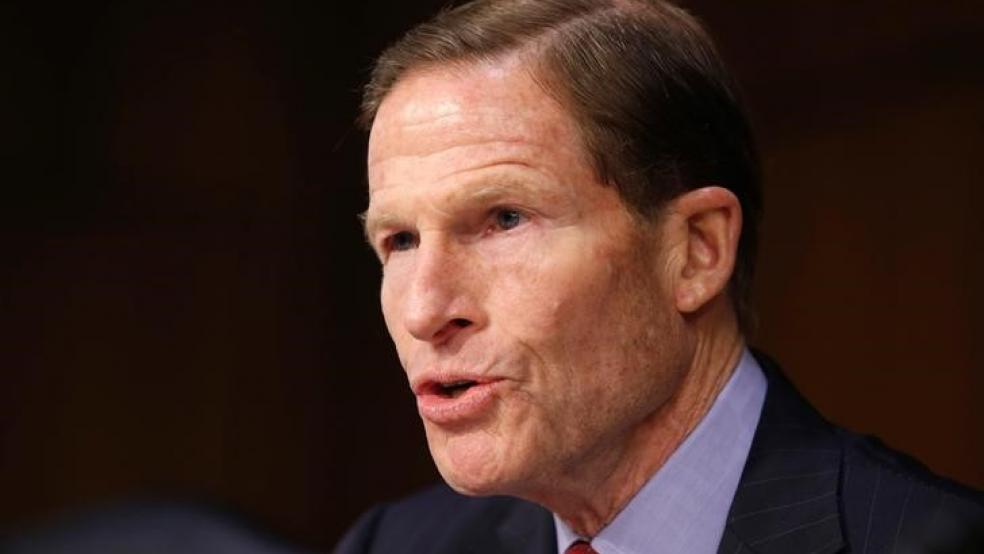Republicans on Capitol Hill have gotten off to a bad start as a governing party in full control of Washington DC. Despite having a solid majority in the House, the GOP failed to pass its first major legislation – the repeal of Obamacare that they had promised for the last seven years – even in that chamber, let alone in the Senate. The stumble exposed divisions that threaten to undermine other White House agenda items, so much so that President Donald Trump and his team have begun talking about finding ways to work with moderate Democrats to advance their domestic policy goals, such as tax reform. They’re even thinking about crossing the aisle on health care.
That strategy may not pan out either as the coming confirmation vote for Trump’s Supreme Court nominee could prove. While Republicans appear incapable of seizing the moment for governance due to internal divisions, Democrats seem ready to unify in a demonstration of opposition to governance.
Related: Top Senate Democrat Promises Fight to Block Trump High Court Pick
Neil Gorsuch, a ten-year Tenth Circuit appellate jurist, finds himself cast into a strange role as the catalyst of this potential meltdown. Unanimously confirmed to his current position in 2006, Gorsuch spent the last ten years building a strong record of jurisprudence as well as a reputation for independence. Last week, Gorsuch demonstrated his grasp of the law and a gentle judicial temperament during a grilling by Senate Democrats.
Gorsuch’s deft handling of the interrogation and his ability to answer critics with the law and the broad context of his career had no better example than his exchange with Sen. Dianne Feinstein (D-CA). Feinstein, the Senate Judiciary Committee’s ranking member, questioned whether Gorsuch could offer any proof that he “would give a worker a fair shot, maybe something in your background I don’t know about.” This question was part of a Democratic strategy to paint Gorsuch as nothing more than a corporate shill, but it backfired spectacularly on Feinstein. Gorsuch named ten cases off the top of his head, including two in which he found for plaintiffs in workplace discrimination cases, a sexual harassment case, and three in which he’d sided with environmentalists.
Feinstein realized that she’d fallen into a classic blunder for cross-examination – asking a question without knowing the answer and allowing the witness to fill in the gaps. When Feinstein attempted to cut off Gorsuch, he insisted that his record showed him to be “a fair judge.” He concluded by declaring, “I can’t guarantee you more than that – but I can promise you absolutely nothing less.”
Related: More Democrats Oppose Trump's U.S. Supreme Court Pick
Senate Democrats had come under severe pressure from progressive activist groups to find a reason to block Gorsuch’s confirmation to the Supreme Court, part of a strategy of “resistance” to the Trump administration. Rather than do damage to Gorsuch, the hearing made him look extraordinarily mainstream in both the law and in human terms. As the New York Daily News’ liberal editorial board expressed it, Gorsuch “withstood a murder board of questions last week to prove himself to be an extraordinarily qualified, whip-smart jurist with exemplary judicial temperament.”
The attempts to paint Gorsuch as extreme and unfit failed spectacularly, and instead, the hearings demonstrated that Gorsuch might be the most talented and prepared candidate to appeal to Republicans – who control both the Senate and the White House after an election in which this particular Supreme Court seat became a significant issue for voters.
Rather than acknowledge the obvious, however, Senate Democrats have decided to obstruct the Gorsuch appointment anyway, as Senate Minority Leader Chuck Schumer has called for a filibuster against his confirmation. If successful, it would be the first filibuster of a Supreme Court nominee since Abe Fortas in 1968 for his elevation to chief justice, and that was a bipartisan filibuster over ethics issues that would later force his resignation from the court.
Related: Supreme Court Nominee to Face Confirmation Vote April 7
Only two other Supreme Court nominees have faced attempts at filibusters: Samuel Alito in 2006, and William Rehnquist in 1971 and again in 1986 when nominated as chief justice. The so-called 60-vote standard has never been applied to Supreme Court nominees, as Washington Post fact-checker Glenn Kessler repeatedly wrote, and two of the current justices on the Supreme Court got confirmed with fewer votes.
Gorsuch’s opponents have no legitimate reason to block his confirmation other than political disagreement. Our system of government is supposed to function around such matters, however, especially when it comes to presidential appointments. If Democrats refuse to confirm Gorsuch, it will become clear that they will obstruct any nominee they do not choose for themselves. It will be an exercise of the absolutism of the minority – a refusal to cooperate in governance on anything other than the terms of a party that lost the last election and lost it badly.
Republicans may have proven themselves momentarily incompetent at governance over the American Health Care Act, but at least they tried to operate within the parameters of majority governance. Democrats might have taken a wiser course in cooperating with the traditional model of governance while reminding their supporters of the consequences of losing elections as a motivator for future cycles.
At least that would demonstrate a mature approach to the reality of their situation and acknowledgment of Gorsuch’s obvious qualifications for the Supreme Court. Instead, Democrats have muffed a clear opportunity to contrast themselves with the fumbling GOP and left Americans with a choice between a party struggling to govern and another absolutely refusing to do so.






